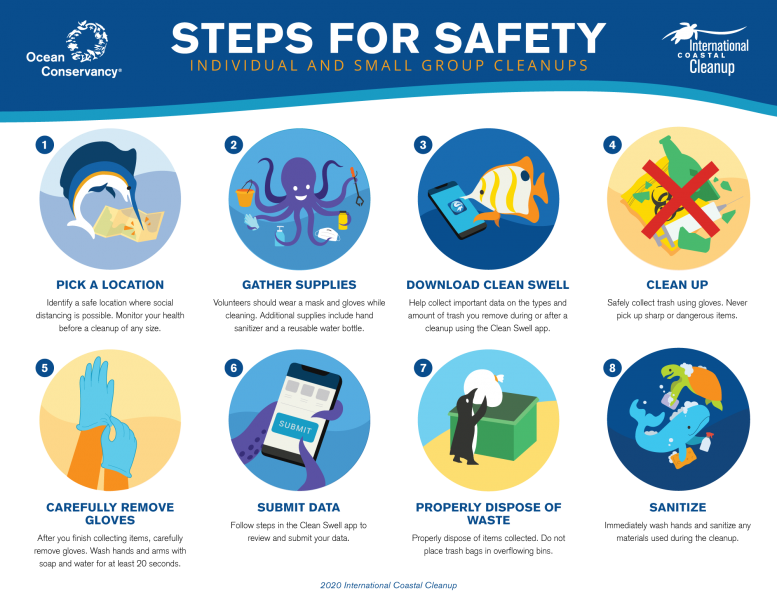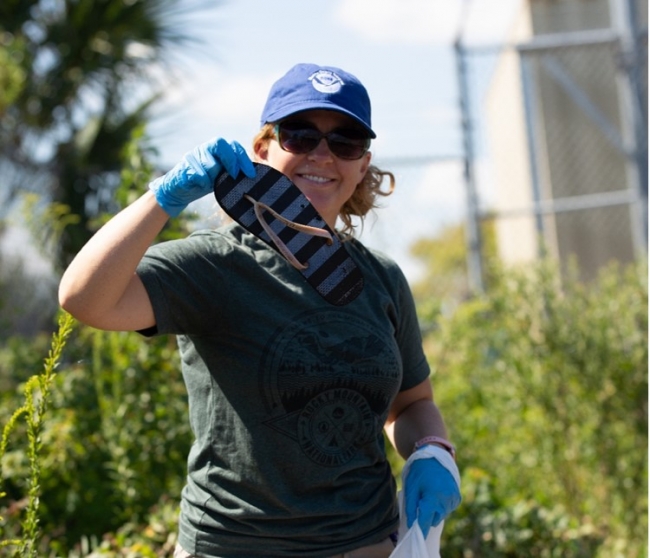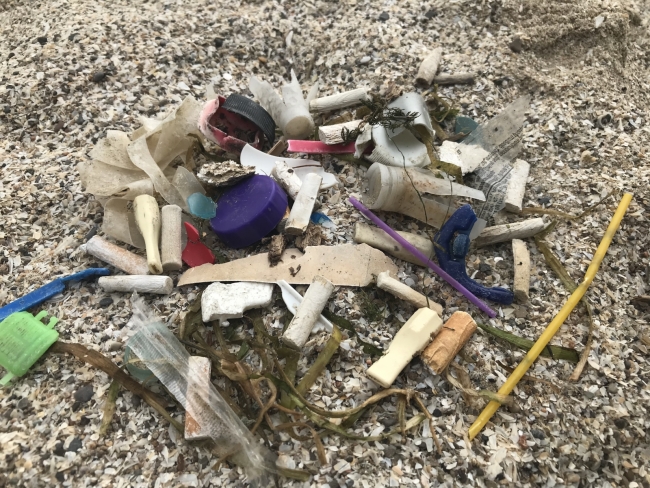It’s almost that time of year—time for the 35th annual International Coastal Cleanup! The Ocean Conservancy brings people together around the globe for this event to clean up marine debris in their local communities, and the NOAA Marine Debris Program is proud to have supported the International Coastal Cleanup for 14 years. During the 2019 cleanup, almost a million volunteers in 116 countries collected more than 20 million pounds of trash! Food wrappers (e.g., candy, chips, other flexible food packaging) topped the list as the most-collected item worldwide. This is the first year that cigarette butts were not the most common item. However, cigarette butt litter is still a significant problem and was the second item on the top ten list.
Things may be different this year, but we can still make an impact when we work apart and together to clean up and protect our ocean, coasts, and Great Lakes. On September 19, and all throughout the month of September, you can virtually join the 2020 International Coastal Cleanup along with thousands of volunteers across the world to make a difference and #CleanOn!
As we all focus on staying safe and healthy, we are asking ocean lovers everywhere to do an individual, family, or small-scale, socially distant cleanup in your community, when and where it is safe. Simply download the Clean Swell app and record how much trash you pick up, so that you can be counted in the global effort to keep our sea free of debris! Focusing on safe, small cleanups, a new feature has been built into the app that allows users to record information after they clean. You can also do your part right from your very own home by continuing to learn about the issue, reducing waste, and preventing potential marine debris.

Find more information on how to conduct a safe, small group, or individual cleanup on the Ocean Conservancy website. Please also follow Center for Disease Control guidelines and any instructions or guidance provided by your local health agencies. Volunteers should always wear gloves to protect hands as well as face coverings or masks to keep you and others safe.
Although we may not see you in person, we will all see cleaner beaches and shorelines as a result of your work!


